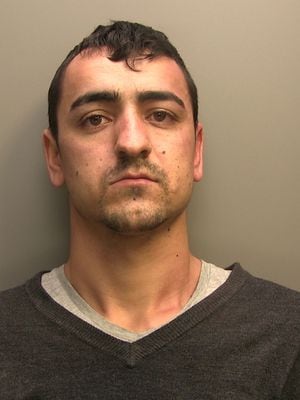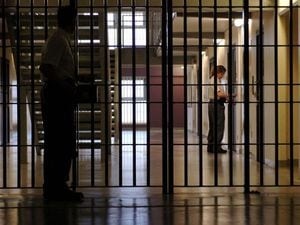Telford man jailed for church lead thefts that left £2 million repair bill
A gang that stole lead from churches leaving a £2 million repair bill have been jailed for a total of 22 years.

The four men – including Constantin Motescu, 32, of Stebbings, Sutton Hill, Telford – targeted places of worship during a two-year crime spree.
Motescu was jailed for six and a half years for his role in the racket. The criminals were arrested last March after police launched Operation History to investigate the large number of church lead theft cases stretching from Somerset to North Yorkshire.
Sentencing them, Judge Catarina Sjolin Knight told Lincoln Crown Court: “This was an organised, sophisticated and persistent operation, which targeted country churches across England for their lead. Each theft required significant planning and team work to conduct the theft.
“The harm was high because of the heavy consequential financial losses occasioned by the thefts, the impact on the local and wider community and the damage to heritage assets.”
The gang used hire vehicles many of which had tracking devices which provided evidence for the police as to exactly where they had been.

The lead was rolled up from the roof and thrown onto the ground sometimes damaging gravestones in the churchyard. They then sold it within hours to a recycling business in Birmingham receiving thousands of pounds in payments made directly into their bank accounts.
Michael Cranmer-Brown, prosecuting, said “These defendants played a hugely significant part in an organised crime group whose target was lead sheeting which can be found on the roofs of churches around the country.
“The defendants travelled the length and breadth of the country to churches set in small rural locations arriving there in the early hours of the morning, climbing on to the roof and removing large amounts of lead under cover of darkness.
“The churches attacked were located in Lincolnshire, Humberside, Derbyshire, Cambridgeshire, Wiltshire and Avon & Somerset. Lincolnshire as a county was particularly hard hit.”
Mr Cranmer-Brown said that the churches were targeted after the defendants trawled the internet for potential targets.

“The total damage and loss to the churches was in excess of £2 million,” he added.
The damage to one Lincolnshire church was valued at £250,000 and the other targeted churches all suffered significant damage with the loss of the lead causing water ingress which damaged the inside of the buildings.
The loss of lead also caused serious problems to the communities. The individual churches were each left to foot the repair bills themselves as many could only obtain insurance cover for damage up to £7,500 and others were unable to obtain any insurance.
Motescu admitted 23 charges of theft. Accomplices Paul Buica, 25, of George Street, Birmingham, admitted 16 thefts. Laurentiu Sucea, 38, of the same address, admitted 13 thefts, and Mihai Birtu, 24, of Evesham, admitted 14 thefts. Sucea was jailed for six and a half years, Buica for six years and Birtu received a sentence of three years and seven months.

A hearing to confiscate the available assets of the defendants will be held at a later date. The offences occurred between May 2018 and March 2020. Half of the roof of a Grade I-listed church in Cambridgeshire was left “open to the sky” after its lead covering was removed in October 2018, while at another church the damage estimated at more than £100,000.
The men were finally caught after Lincolnshire Police set up a dedicated team to work with the Diocese of Lincoln after a spike in lead theft cases.
Chief inspector Phil Vickers said: “During 2019 Lincolnshire Police worked with the Lincoln Diocese and individual church premises across the county, providing site-specific advice to 53 premises as well as broader guidance to prevent offending, in addition to several hundred site visits that had been carried out previously.”





